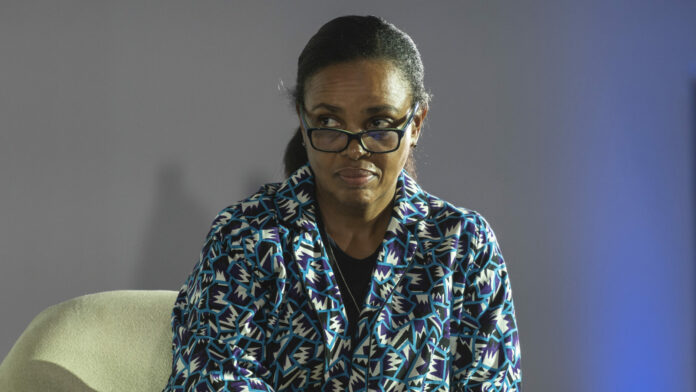
ACCORDING to Dante’s Inferno the Gates of Hell bear an inscription saying “abandon all hope, ye who enter here” and, after attending the Joburg Indaba mining investment conference over the past two days, I can’t help feeling it’s an appropriate logo for investors pondering getting into the South African mining sector.
The reason is that the South African government still just does not get it. It does not get the need to allow far greater involvement from the private sector to fix the incredible mess the economy has gotten into thanks to its ideological fixations over centralised state control and desire to promote black economic empowerment (BEE) at any cost.
Latest example comes from Transnet – the state-controlled organisation which monopolises the country’s rail and port infrastructure. The yawning chasm between the State and the private sector was laid bare through the presentation given by Transnet CEO, Portia Derby.
She was speaking after presentations from former Anglo CEO Mark Cutifani telling the ANC to drop its ideological approach and Minerals Council CEO Roger Baxter spelling out just how much damage Transnet was doing to the country’s commodity exporters. Remember that it was these companies whose booming tax revenues saved the South African Treasury’s neck over the last two years.
Cutifani slammed the ANC’s underlying ideology and its bureaucratic approach commenting “We have to take out the bureaucracy and slow processes to get things done. It is a bigger issue than anyone is prepared to say”.
The irony of the situation is that Cutifani was standing in as a speaker for the Minister of Minerals and Energy Gwede Mantashe who dropped out – yet again – at the last minute. You have to wonder why?
Mantashe’s excuse was he had pressing engagements in Cape Town, but had he pitched he would have been grilled – yet again – on why his department had not yet introduced a new mining cadastral system nearly two years after he acknowledged this was a critical requirement to encourage development of the country’s mining industry.
Baxter laid out just how much Transnet’s failings had previously cost the country in foregone foreign exchange revenues and tax receipts because it could not rail the contracted volumes of coal, iron ore, manganese and chrome to the ports.
He put a figure of an extra R151bn on the amounts that could be earned in annual export revenues if Transet could achieve the “optimised” logistical levels on the country’s main bulk commodity exports.
But, to do this, Baxter pointed out there was an urgent need for “real partnerships” between the bulk mining companies, Transnet and Government to encourage private sector involvement on the key railway corridors.
Derby’s response? She said Transnet’s strategic priority will be to allocate any new capacity on its iron ore, coal and manganese channels to emerging black miners to address the lingering historical imbalances in the economy.
Past errors
Listening to her I was reminded of former Eskom CEO Brian Dames’ stance when he defended Eskom’s policy of insisting that any new coal companies wanting to supply Eskom’s power stations had to be 51% BEE empowered – this when the country’s mining legislation only required a 26% BEE stake.
There again, I should not have been surprised. At the Coal & Energy Transition Day conference in July this year Derby’s deputy – Transnet Freight Rail CEO Sizakele Mzimela – had told delegates that private public partnerships on the coal and other main commodity lines were “very unlikely” at this stage.
Like I said at the beginning – the Government just doesn’t get it. Or maybe that should be it just doesn’t get it until even they can see the roof caving in. That is what has happened with Eskom.
Eskom fought tooth and nail against allowing private enterprise into the country’s electricity sector until the roof did cave in and – now, after nearly 14 years of centralised power management mayhem – power generation is wide open to the private sector.
Does that really have to happen to our mining export businesses before the ANC sees the light?
The bottom-line reality that the country’s politicians and bureaucrats simply do not want to accept was spelt out at the end of the conference by arch-capitalist and US investor Rick Rule when he said: “Capital is not interested in coming to South Africa to right past wrongs”.











